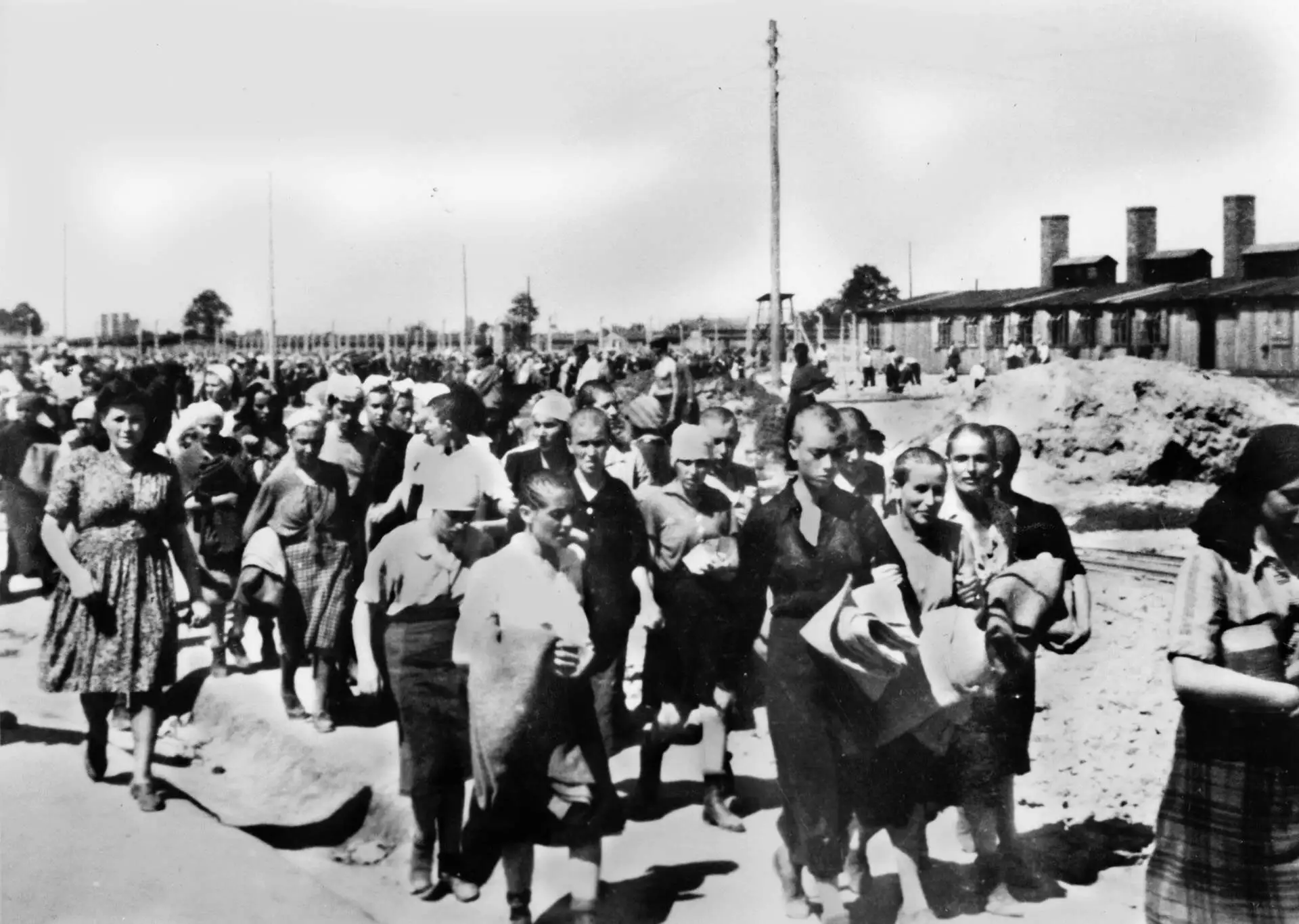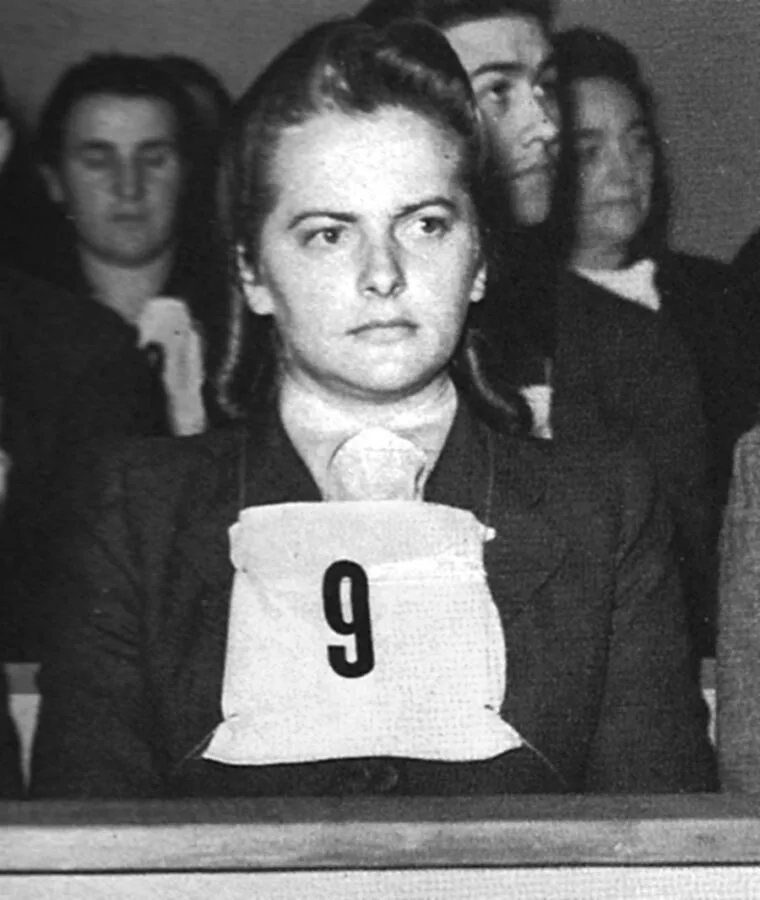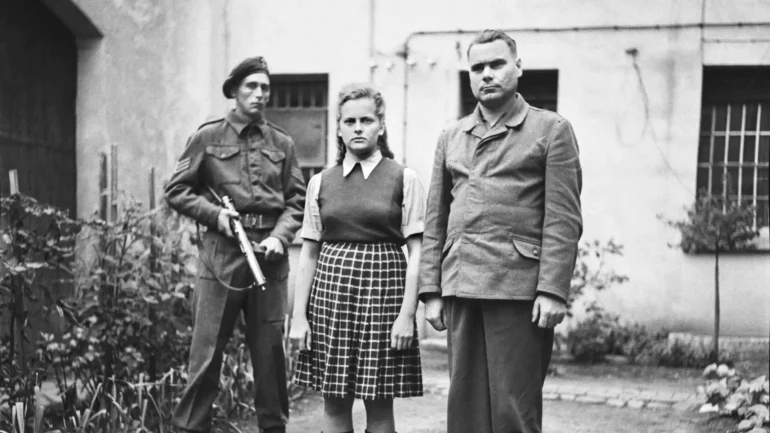Irma Grese worked as a Nazi concentration camp guard, Irma Grese was assigned to Ravensbrück, Auschwitz, and Bergen-Belsen during the time of World War II. Because of her very harsh behavior and love for causing pain, she got names like “the Hyena of Auschwitz” or “the Beautiful Beast”. Grese went up in rank to become the second most important female SS overseer at Auschwitz. Her tasks included choosing prisoners for gas chambers and torturing inmates with beatings, whippings as well as using attack dogs on them. Post-war, she got a verdict of guilt for crimes against humanity during the Belsen Trial.
Early Life And Background
Irma Grese was born in 1923, originating from a small village that does farming located at the northeast part of Germany. She started her life with a family background from working class and got involved in sad events when her mother committed suicide when she was only 13 years old.
This made Grese grow up under her father’s care alone. She left school when she reached 14 years old and worked different kinds of temporary jobs such as on a farm, at a shop among others before going to get trained as a nurse at a hospital nearby their place.

This somewhat ordinary beginning would soon change into a difficult time for Grese, as she got more and more influenced by the growing Nazi beliefs.
Joining the Nazi Movement and SS
Irma Grese wanted to join the League of German Girls, which is the female part of Hitler Youth but her father said no. When she was 17 years old, Grese moved against his will and went to SS Female Helpers’ training base near Ravensbrück concentration camp.

In 1940 she started working as guard at Ravensbrück; later on in 1943 transferred over to Auschwitz where she became second highest ranking female SS overseer there.” Grese’s choice to be a volunteer for the SS at 19 years old tells us about how the ideas of Nazis and warrior-youth attracted her when she was still a young, impressionable woman.
Postings at Ravensbrück and Auschwitz-Birkenau
During the summer of 1942, Irma Grese who was just 19 years old started her training to be a guard at Ravensbrück concentration camp. She became known quickly for being very brutal and cruel with prisoners, showing no mercy towards them.
In March 1943 she was moved to Auschwitz-Birkenau camp where she climbed up fast in the hierarchy of SS overseers and got promoted as second highest female guard there. Survivors of Auschwitz have given their words about Grese.
They talk of how she would cruelly use her whip to beat prisoners, unleash attack dogs on them and randomly shoot anyone she believed was not fit for work. She especially enjoyed picking out people, often women and children, to be sent into gas chambers.
Selections for the Gas Chambers
Irma Grese had a horrible part in choosing prisoners at Auschwitz for gas chambers. Being an SS overseer with high rank, she was given responsibility of inspecting and evaluating prisoners.
She used to prod or poke them violently, deciding who is “unfit” for work. People who saw this said she did it with malice aforethought calling out the names of thousands of prisoners, saying they must proceed to gas chambers where they will be killed.

The inmates were always frightened of Grese’s choices, as they knew her random decisions might decide if they live or die.
Beatings, Torture, and Murder
Irma Grese was notorious for her severe cruelty and sadism towards captives, brutally beating and torturing them with a plaited whip. Eyewitnesses said that she would shoot detainees for minor violations, or occasionally for no reason at all.
Grese’s heinous deeds of cruelty gained her the terrifying nicknames “the Hyena of Auschwitz” and “the Beautiful Beast” from the scared prisoners she terrorized. Survivors described Grese as taking great pleasure in flogging women across the breasts with her braided wire whip, causing serious damage.
Bergen-Belsen and the End of the War
As Allied forces advanced in early 1945, Irma Grese was transported from Auschwitz to the Bergen-Belsen detention camp. She continued her reign of terror there, witnessing the atrocities that British troops discovered when they liberated the camp in April 1945.
Survivors described piles of unburied corpses as well as thousands of malnourished, ill inmates who were starving and dying from typhus.
Grese was apprehended by British forces at Bergen-Belsen and, despite the crimes she had done, remained stubborn and unrepentant throughout her interrogation.
The Belsen Trial and Grese’s Conviction
Irma Grese was tried at Lüneburg in 1945 for war crimes committed in the Auschwitz and Bergen-Belsen detention camps. Survivors testified at the nine-week trial about Grese’s extraordinary cruelty, including her use of a whip to violently beat captives and her role in selecting detainees for the gas chambers.
Grese, on the other hand, remained stubborn throughout the proceedings, dismissing the gravity of the charges leveled against her and expressing no regret for her actions. Grese, despite her young age of 22, was convicted and sentenced to death by hanging.
Even as she approached execution, she remained unrepentant, singing Nazi tunes the night before she died.
Grese’s Morality
The subject of Irma Grese moral guilt is difficult. On the one hand, she was a result of intense Nazi indoctrination that pervaded German society, particularly through organizations such as the Hitler Youth, which targeted young people.
Her terrible background, including her mother’s suicide, perhaps rendered her more susceptible to the appeal of Nazi ideology. Grese volunteered to become a concentration camp guard at the age of 19, demonstrating the effectiveness of brainwashing.
Grese’s activities at Auschwitz and Bergen-Belsen, including sadistic beatings, gas chamber selection, and arbitrary deaths, reveal a level of personal cruelty and lack of remorse that goes beyond conventional indoctrination.
Irma Grese’s life and crimes serve as a chilling reminder of the capacity for human evil, especially when fueled by the toxic combination of totalitarian ideology, indoctrination, and the dehumanizing effects of systems like the Nazi concentration camps.

